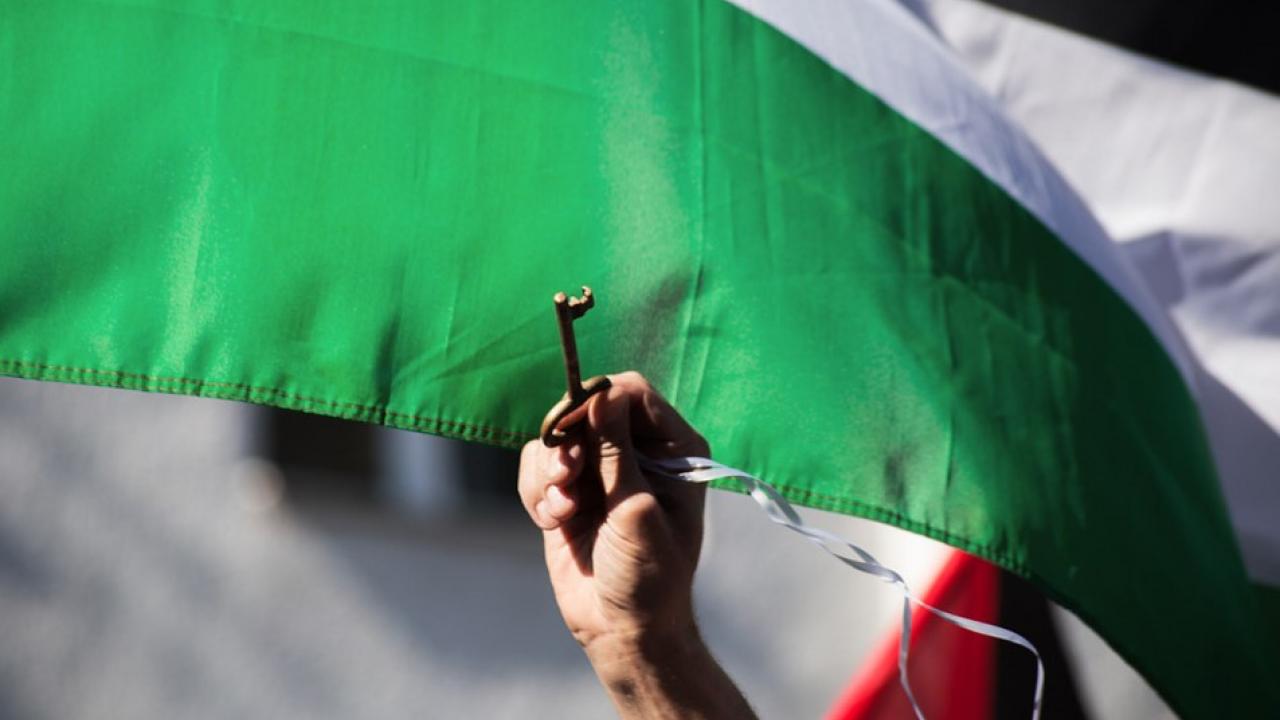by BARBARA RANSBY

Barbara Ransby charts the relationship between Black feminist organizing and the movement for a Free Palestine, and provides a poem in solidarity with the people of Gaza.
The right-wing Israeli government, led by Benjamin Netanyahu, has persisted unabated for nearly eight months in its military assault against the people of Gaza in clear violation of international law. The forced displacement of 1.7 million people out of a population of 2.2 million, the withholding of essential services, the continued bombing of hospitals, homes and mosques, the shooting of live ammunition at the limited food distribution sites in Gaza, rendering it unlivable.The conditions inside Gaza have grown more dire, desperate, and gut-wrenchingly surreal. Children are literally starving to death in Gaza as Israel blocks the passage of aid to those in need. One UN official referred to it as a “graveyard for children.” Israel’s war represents deliberate ethnic cleansing, and protracted genocide. There is nothing else to call it. And the world is watching it unfold before our eyes on social media. The images are horrendous.
Genocide is defined by the United Nations in the following way in Article II of the Genocide Convention: “Genocide means any of the following acts committed with intent to destroy, in whole or in part, a national, ethnical, racial or religious group, as such: killing members of the group; causing serious bodily or mental harm to members of the group; deliberately inflicting on the group conditions of life calculated to bring about its physical destruction in whole or in part; imposing measures intended to prevent births within the group; and forcibly transferring children of the group to another group.”
What is happening in Gaza today fits much of this description. And while I don’t condone the actions of Hamas on October 7th, and mourn all loss of human life, this conflict did not begin on October 7th. The before and after are deeply relevant. After 76 years of occupation, repression, indignities of checkpoints and military incursions, Gaza and Palestine as a whole, were a ticking time bomb fueled by decades of anger, frustration and violence, and a sense of abandonment by the international community as Israel continues to violate UN resolutions and international law on many fronts.
As I write the assault on Gaza continues as do protests and humanitarian appeals for an end to the carnage. Black radical and progressive voices once again have been outspoken in standing with the people of Gaza in this moment of crisis. This stance is a part of a long tradition. Here is some of that history.
For many of us who were involved in the anti-Apartheid and Free South Africa solidarity movements in the 1980s and 90s, the struggle of the Palestinian people was introduced to us by our friends and comrades in the African National Congress who had strong ties with the Palestine Liberation Organization. And the relationship between the Black Freedom Movement and the struggle for freedom in Palestine goes back much further.
In 1948, in the immediate wake of the Holocaust, many Black progressives were sympathetic with the idea of a Jewish homeland as a bulwark against anti-semitism and a response to the devastating effects of Nazism and fascism. Celebrities like Harry Belafonte and Lena Horne did benefit concerts for the new Jewish State, and Black diplomat and intellectual, Ralph Bunche, won a Nobel Peace Prize in 1950 for brokering the deal that led to the formation of Israel.
It should be noted that even in 1948 there was neither Black nor Jewish unanimity on the question of Palestine and Israel. Jewish communists and leftists rejected Zionism as a resistance strategy calling instead for a broad based united front against the Cold War, McCarthyism, imperialism and anti-Semitism. The majority of the Black Left shared this position.
Forge for more
